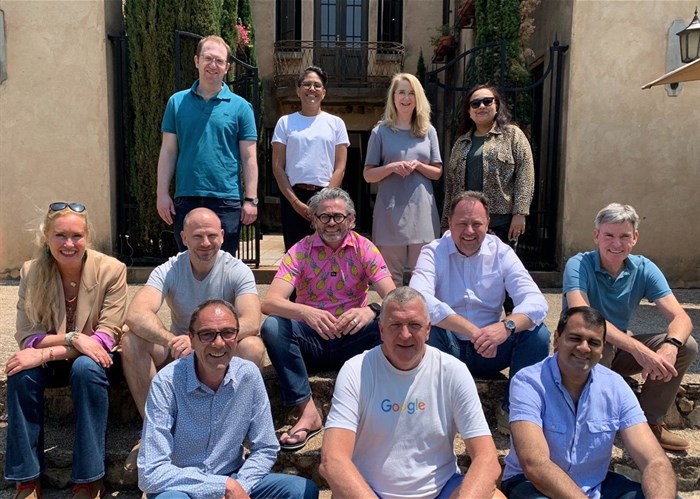Baker McKenzie partners in Johannesburg discuss the key legal and investment trends affecting technology, media and telecommunications, fintech and data privacy in Africa, and what can be expected in 2022.

Baker McKenzie Johannesburg team
Technology, media and telecommunications (TMT)
The TMT sector is transforming businesses in Africa, opening up competition, introducing new services and disrupting incumbent business models. Before Covid-19, businesses in Africa used technology to reduce costs, improve processes, grow customers and enhance innovation. The impact of the pandemic boosted existing trends, especially digitalisation and the remote delivery of services. However, for Africa to implement high end, fourth industrial revolution (4IR) technology and infrastructure, TMT companies require flexible and investment-focused policy and legislative frameworks that cater for the affordable and efficient rollout of telecommunications infrastructure and access to broadband spectrum. The rollout of 5G in Africa will lead to the significant transformation of the manufacturing, health, transport and utilities sectors. Once the Internet of Things (IoT) becomes a reality, through the rollout of 5G, Africa's transformation will be meaningfully accelerated through the ability to access the enhanced capabilities of smart cities, asset tracking, connected shopping, energy monitoring, smart homes, and smart agriculture. For example, 5G will enable the use of wireless sensors to monitor crop conditions and track livestock, resulting in better crop yields, higher quality produce, and more efficient farming.
Unfortunately, very few African countries have made significant progress in the roll out of 5G and if this is to be a focus then it will be important to ensure that policy and legislative frameworks are in place to enable the efficient and affordable roll out of telecommunications infrastructure, as well as access to the required broadband spectrum. A further important focus for the success of 5G roll out in Africa will be the ability of consumers to access affordable data services and smart devices.
Lodewyk Meyer, Marc Yudaken, Mike van Rensburg and Virusha Subban 10 Jan 2022 Further, we expect important developments on the legislative and regulatory front, ranging from content moderation, the increased regulation and possible licensing of online content and social media platforms, the introduction of data localisation requirements and digital taxes, as well as greater regulatory oversight over the operations of intermediary platforms.
Fintech
Despite the global pandemic, the African fintech ecosystem has remained on a steady rise. Increasing access to mobile devices and internet connectivity has accelerated Africa into the second fastest market for global banking and payments businesses. Mobile money and third-party payment systems have been segment leaders, with more than half of the world's mobile money customers now based in Africa, and the continent accounting for three quarters of the world's mobile money and peer-to-peer (P2P) transactions by volume. The Fintech industry has also accounted for more than 25% of all venture capital rounds in the last two years, with regional leaders, such as Egypt, Nigeria, South Africa and Kenya, seeing the majority of funded start-ups and capital coming from various jurisdictions, including west-coast United States and China.
There have also been significant movements in digital currency trends. The Central Bank of Nigeria became the second central bank in the world to issue a Central Bank Digital Currency (CBDC) with its launch of the eNaira in October 2021. African CBDCs hold significant potential for the movement of money on the continent, especially in light of broadening trade corridors as a consequence of AfCFTA. Many other countries, such as South Africa, are also piloting similar projects and feasibility studies.
In the private sector, South Africa also saw the launch of its first Rand-pegged stablecoin, the ZARP, released on the OVEX exchange. The potential of African stablecoins is far reaching, and they are quickly becoming the bedrock of a new movement known as Decentralized Finance (DeFi). South Africa also had its first cryptocurrency, the SAFCOIN, founded in 2018, go global in September 2021, riding on the wave of Africa's growing cryptocurrency market, which ballooned to US$105.6 billion between June 2020 and June 2021.
Darryl Bernstein, Johan Botes, Kieran Whyte and Lerisha Naidu 31 Jan 2022 However, regulators have begun to clamp down on cryptocurrency risks, particularly custodial holding, with the continent also seeing some of the world's largest cryptocurrency scams. Regulators are increasingly aware that these new innovations come with substantial consequences and risks, which must be understood so that African governments and regulators can develop appropriate laws and regulations.
Data privacy and security
The pandemic has driven home the high value of personal data while also highlighting its vulnerability to abuse and attack, and African governments have begun reviewing their data privacy and protection laws and regulations. The Convention of the African Union on Cybersecurity and Personal Data has been ratified by a small number of the 55 AU members, while 14 countries had signed but not ratified it. Legislation governing the digital economy is essential to protect African citizens in terms of their digital privacy and security rights, while also ensuring their online freedoms are not threatened.










































